Mental Health Dashboard (MENDA)
"Empowering Depression Detection Among School Students Through PowerBI"
MENDA, a project funded by Universiti Sains Malaysia’s BJIM grant, addresses the critical need for effective mental health support in schools. Developed with PowerBI, MENDA stands for Mental Health Dashboard – a comprehensive solution tailored for educators, offering a detailed understanding of students’ mental well-being through data visualization and analysis.
This pilot project implemented MENDA at SMK Datuk Hj. Mohamed Nor Ahmad, grappling with rising depression rates among students. MENDA successfully addressed the existing limitations of the school’s data collection system, providing granular insights into individual cases and group trends.
Project Background
Students, particularly during their adolescent years, face a plethora of challenges impacting their mental well-being. Issues like academic pressure, social anxieties, family dynamics, and changing identities can manifest as stress, anxiety, and even depression. Unfortunately, these concerns often go unnoticed or undetected in traditional school settings, leaving students struggling in silence.
Take the example of SMK Datuk Hj. Mohamed Nor Ahmad. Like many schools, the institution is grappling with the challenge of managing its students’ mental health. With an uptick in cases, notably worsened by the COVID-19 pandemic, and a worrying increase in reported depression, there’s a clear need for effective mental health management tools. According to Mr. Ram, the school’s Director of Student Affairs, a significant stressor contributing to the mental health crisis is the intense schedule students face.
While public schools, including this one, rely on the annual student mental health surveys within the Sistem e-Perkhidmatan Murid (SePKM), the system alone falls short of offering a comprehensive picture. It lacks crucial functionalities like data visualizations, group comparison capabilities (e.g., comparing SPM to non-SPM students, male vs. female), and more efficient identification of students displaying depressive or anxious symptoms. Importantly, it does not support preventative interventions through early identification of at-risk students.
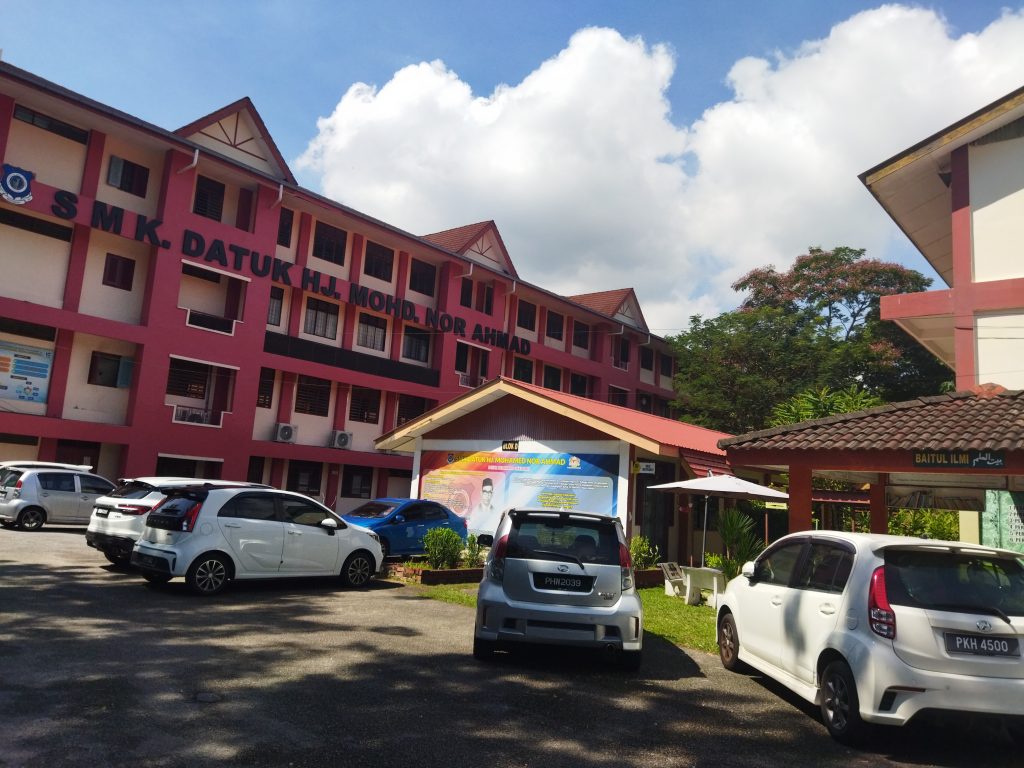
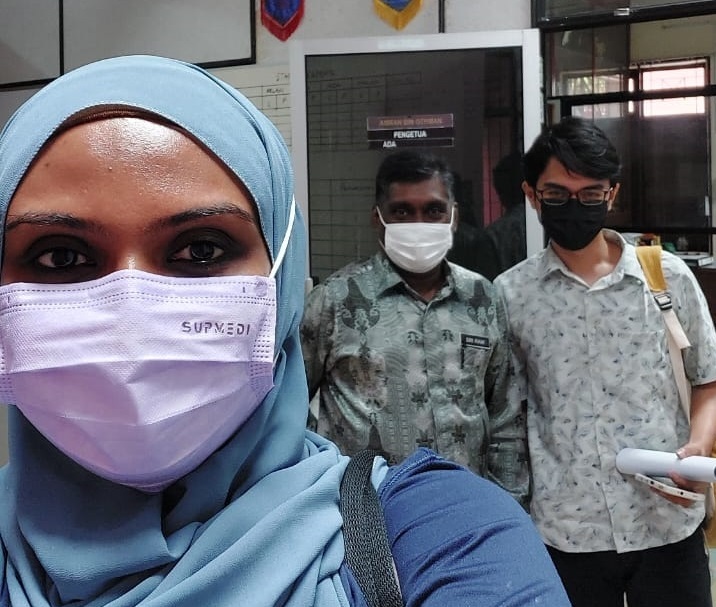
The Solution: Mental Health Dashboard (MENDA)
To bridge this data gap, MENDA presents a comprehensive dashboard for efficient case and group identification. Powered by PowerBI’s robust data visualization, including drill-down capabilities and group comparisons, MENDA empowers educators to dive deep into student mental health data. This granular analysis uncovers patterns, highlights trends within groups, and paints a clear picture of their school’s mental health landscape. Armed with these insights, educators can make informed decisions, providing targeted support and treatment for students struggling or at risk.
A standout feature of MENDA is its integration of machine learning for early identification of at-risk students. MENDA is supported by a regression model to analyze student responses to surveys about key life facets (school, family, friends, internet use, and self-image) – identified as risk factors. These responses are then mapped to a target value based on validated depression and anxiety scales like PHQ-9 and GAD-7. This enables MENDA to predict potential emotional struggles before they surface, paving the way for proactive interventions.
For example, the model might identify students with normal PHQ-9 and GAD-7 scores as at-risk if their responses on risk factors show statistically significant similarity to those of students who scored highly.
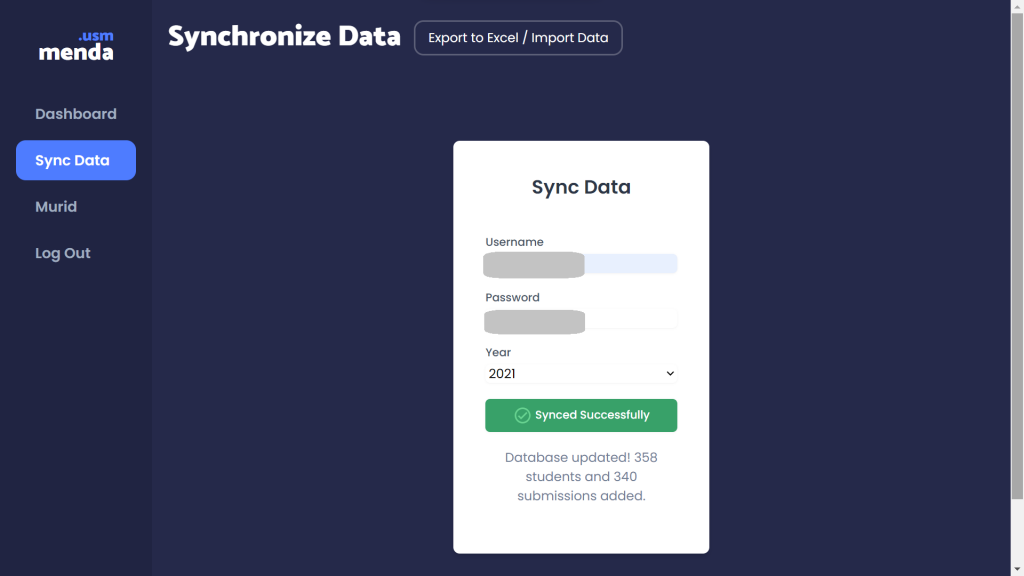
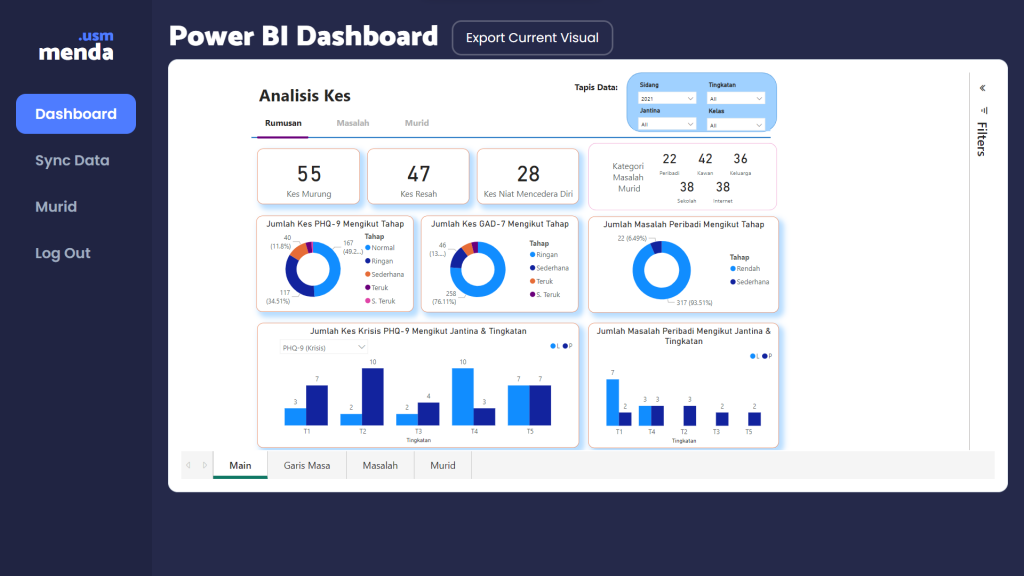
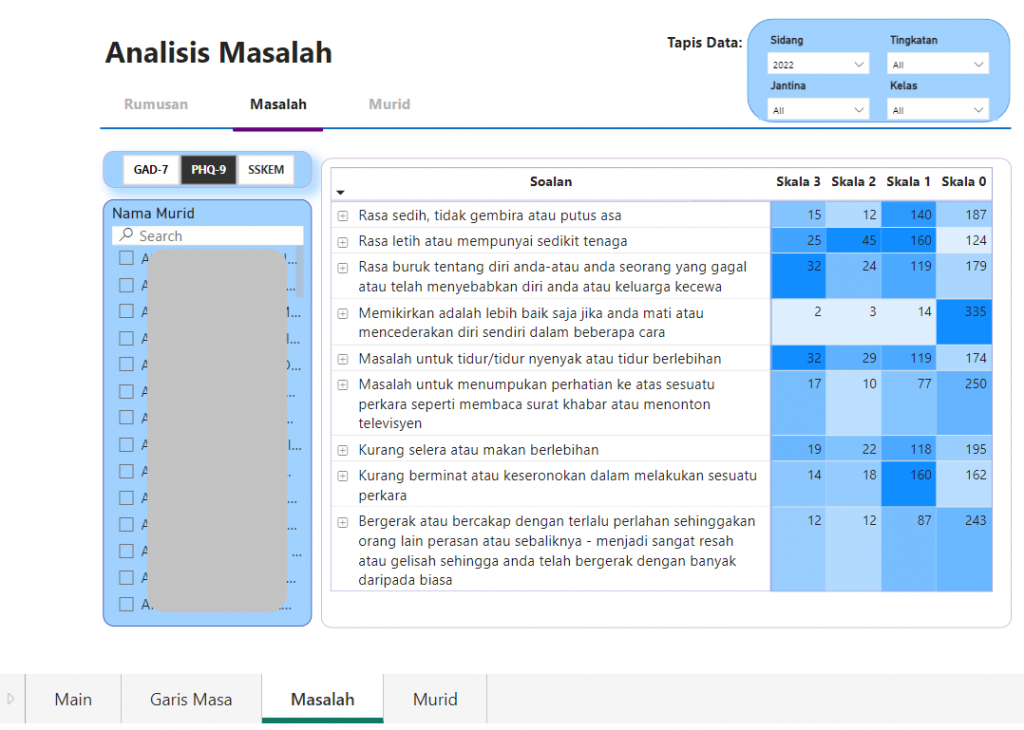
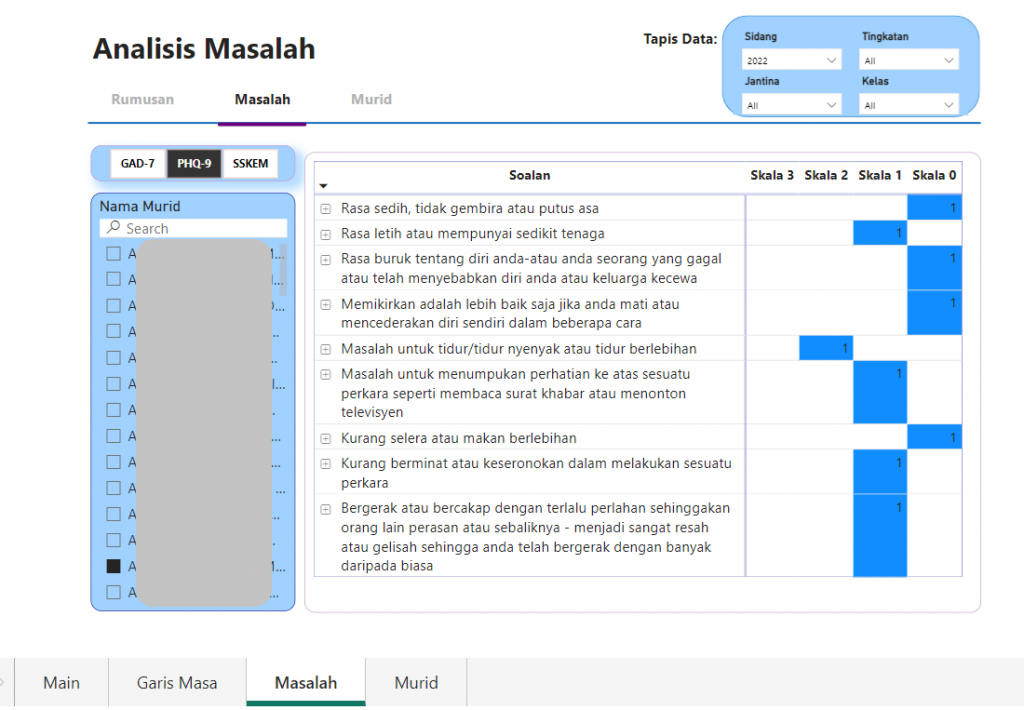
Empowering Students through Cognitive Behavioral Therapy (CBT)
Recognizing the crucial role of practical tools in fostering mental well-being, the project grant funded a targeted Cognitive Behavioral Therapy (CBT) workshop program – titled “Program Jiwa Tenang (Peaceful Mind Programme)” at SMK Datuk Hj. Mohamed Nor Ahmad, on 7th Nov 2023. Led by Dr. Fazzuan and other experienced psychologists from Universiti Sains Malaysia, this program aimed to equip 35 selected students (those exhibiting depressive and anxiety symptoms) with actionable coping mechanisms and strategies to navigate stress, anxiety, and depression.
The workshop delved into the world of cognitive distortions, those unhelpful thought patterns that fuel negative emotions. Through engaging exercises and relatable examples, students learned to identify and challenge these distortions, paving the way for a more positive and realistic perspective. Beyond understanding, the program focused on equipping students with practical skills like relaxation techniques, mindfulness exercises, and stress management strategies. This included techniques like deep breathing, progressive muscle relaxation, and visualization, empowering them to manage difficult emotions in real-time.
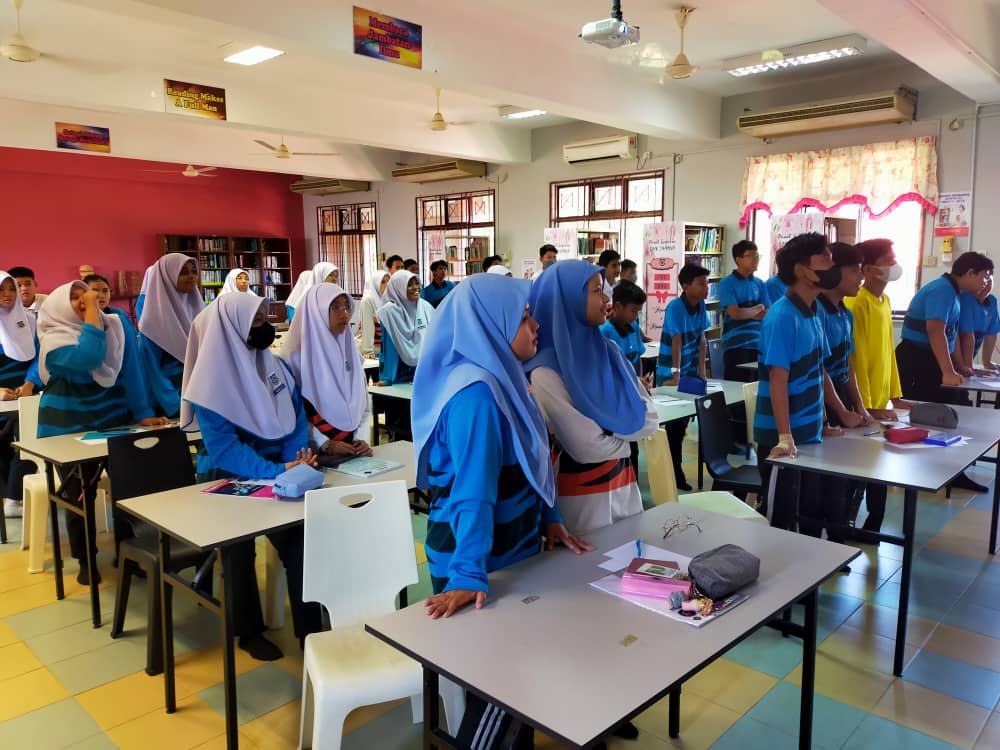
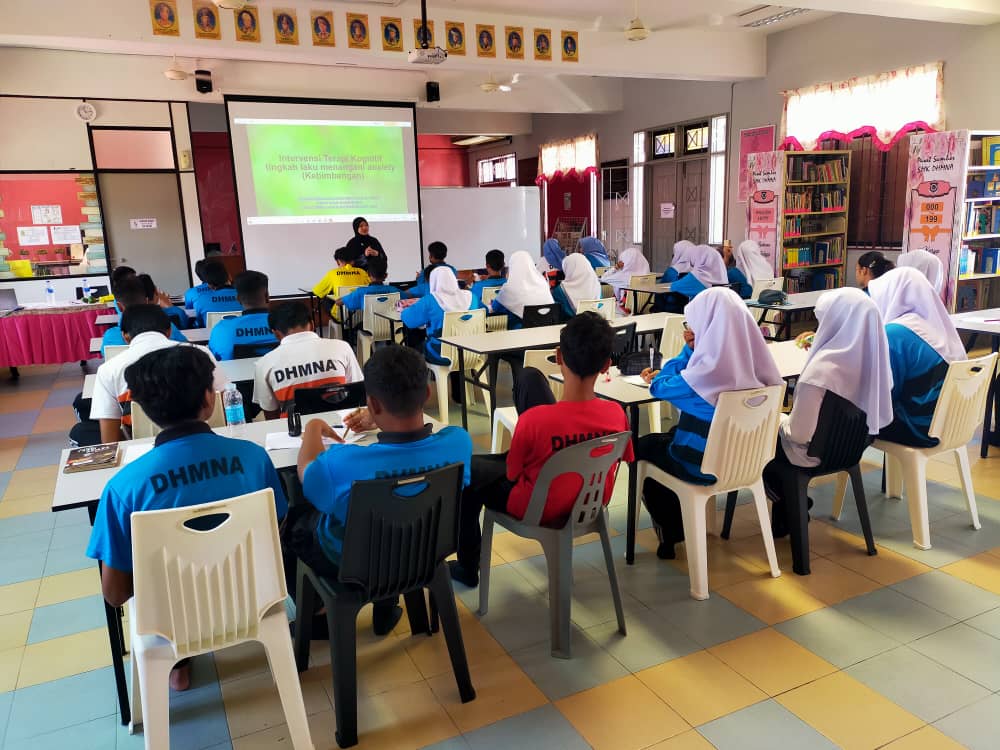
Future Plans
While MENDA’s impact and future plans are clear, its full adoption at the pilot school is still in its final stages. We are confident that the positive results and evidence-based approach will garner widespread support, leading to official implementation within the school in the near future. Additionally, we are committed to sharing our findings and software results with the local district education office, paving the way for wider implementation in other schools across the region and a brighter future for student mental health.
Appendix: Perspectives on MENDA
This video features Dr. Fazzuan and the school counselor, Teacher Asma discussing their opinions toward this grant project. More specifically, the questions asked were Dr Fazzuan’s perception of the students in the CBT program & Teacher Asma’s opinion on the collaboration between the school and USM.